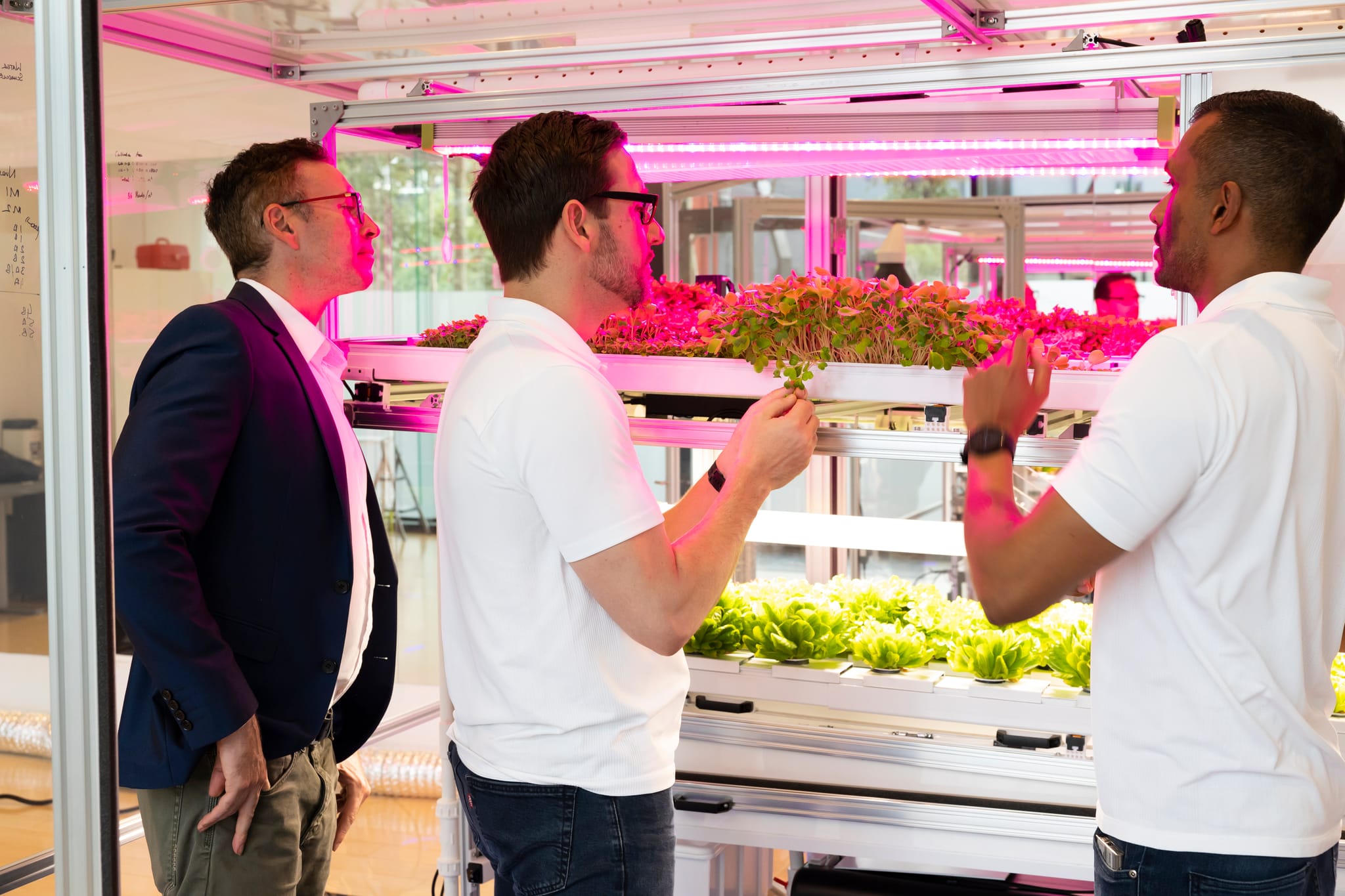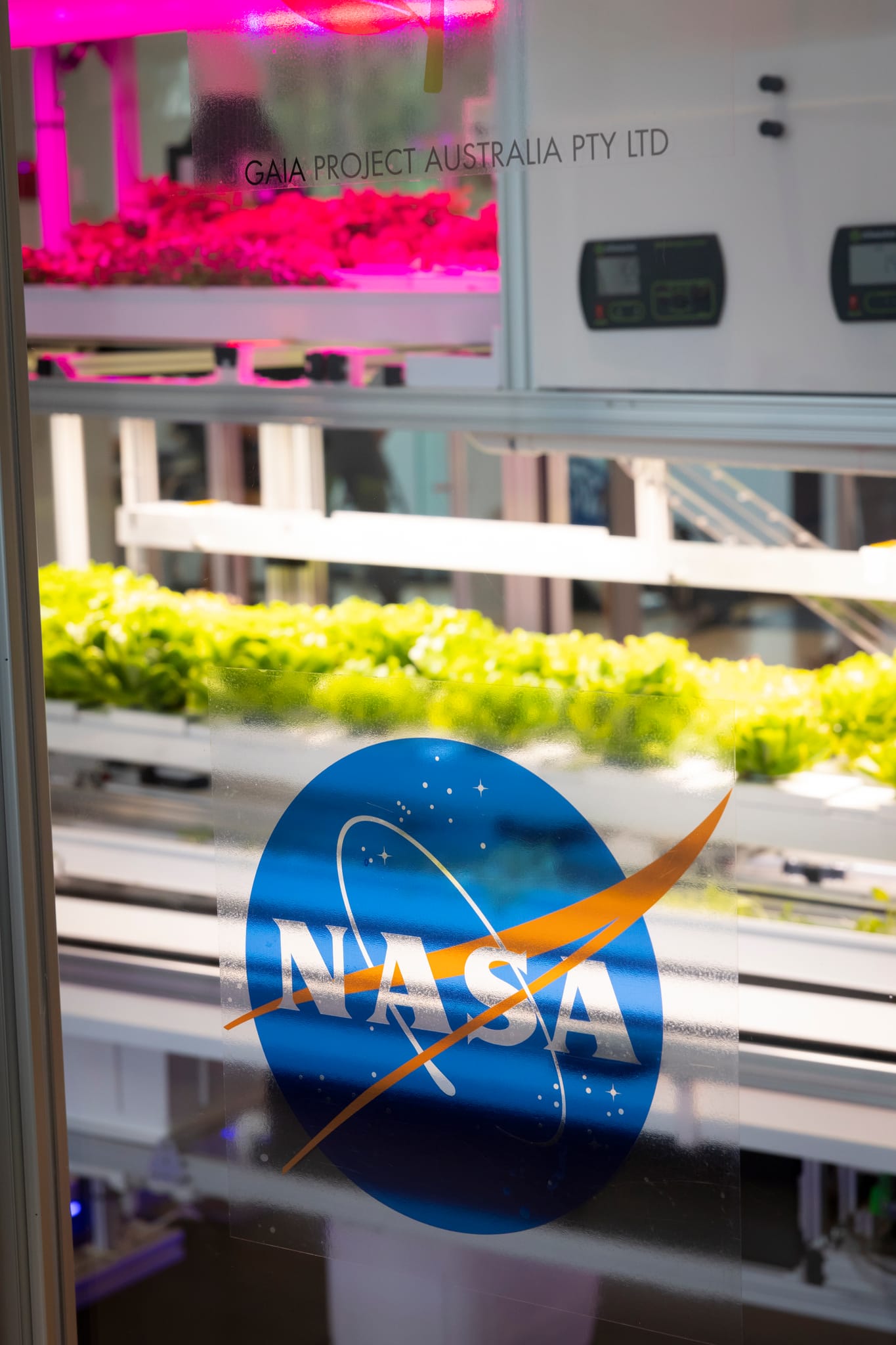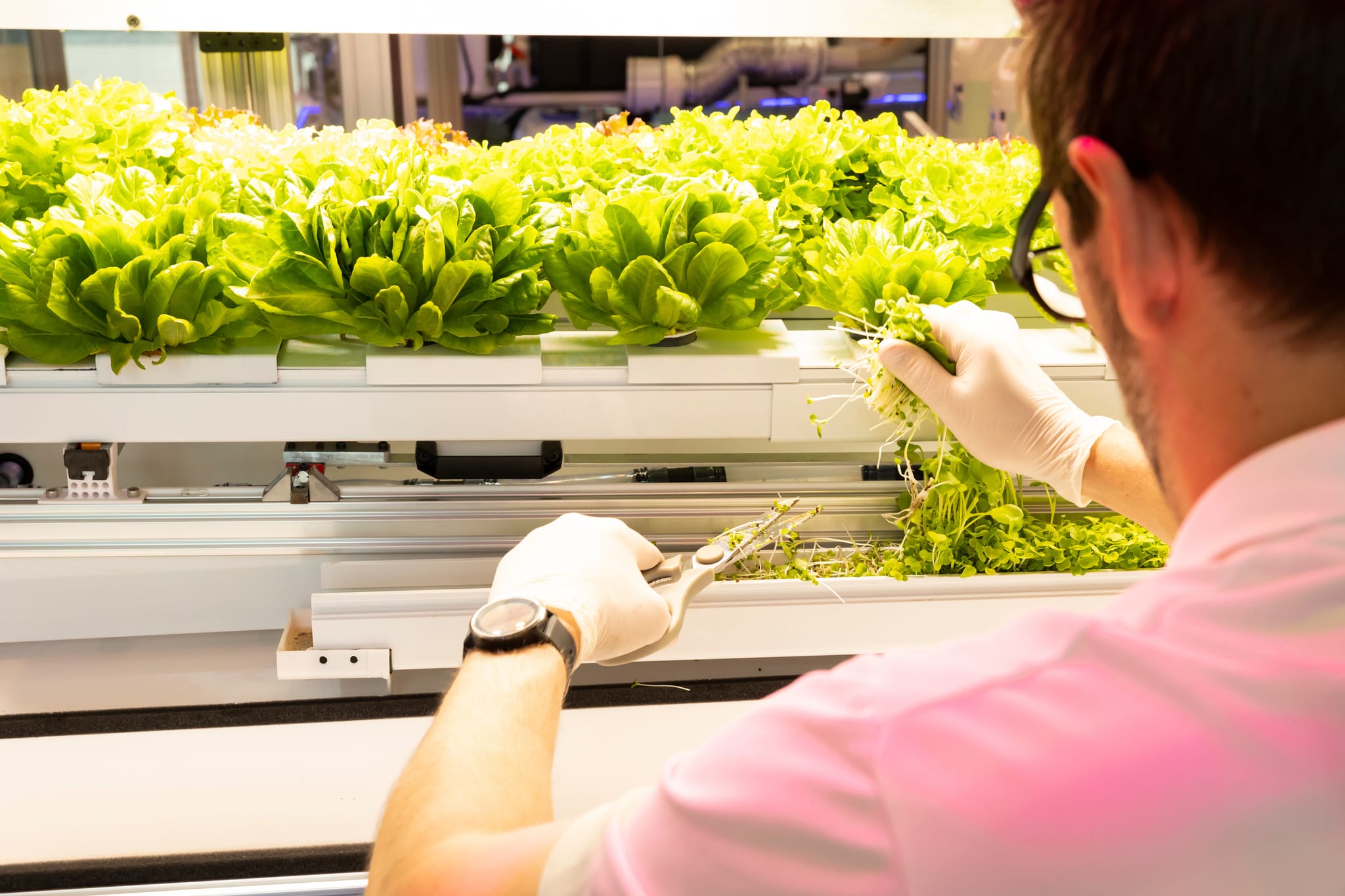Australian startup wins NASA accolade for space tech that’s also tackling food challenges on the ground
Melbourne startup Gaia Project Australia has been recognised by NASA and the Canadian Space Agency (CSA) as a Phase Two winner of the prestigious Deep Space Food Challenge. Despite this astronomic accolade, Founder Nadun Hennayaka says his space tech could help solve global food challenges down on Earth.

Gaia Project Australia uses a modular channel system to improve efficiency in Controlled Environment Agriculture (CEA) – growing produce indoors, in vertical farms or greenhouses, for example.
The channel system is designed to grow with the plants specific grow stages, Founder and CEO Nadun Hennayaka explained.
That means plant density can be increased by up to three times, compared to traditional greenhouse farming, and there’s no need for robotics or human labour to transplant the plants, as there are no pots to outgrow.
“When you use artificial infrastructure, lighting, cooling – every square centimetre that you don’t use is money,” said Nadun.
Through NASA’s Deep Space Food Challenge, Gaia Project Australia (competing as Enigma of the Cosmos) took home first prize in the International Innovation Award in 2021, and later built its first prototype and harvested its first crops.

As a Phase Two winner, the startup now moves on to the third and final stage, building and demonstrating its full-scale food technology, as the only company from outside the US or Europe to ever get to this point.
“It’s a great marketing platform – everyone loves space! So, it’s great to be on the leading edge of that sector.”
Bringing space tech down to earth
NASA and the CSA are looking for agrifood tech solutions to feed actual astronauts on missions to Mars, and other long-duration space flights. But Gaia also has its uses on planet Earth.
Winning teams are selected for their efficiency – how much space, energy and water they require compared to the output produced. Increasingly, that kind of efficiency is required on the ground, too.

The Gaia Project Australia has been recognised by NASA and the Canadian Space Agency (CSA) winner of the Deep Space Food Challenge.
Today, CEA can’t replace traditional agriculture for all crops, Nadun explained, but it can for 20 per cent to 30 per cent.
For the crops it can support, CEA requires less than five per cent of the land, 10 per cent of the water, no pesticides and about 75 per cent of the fertiliser, in comparison to traditional farming.
RELATED: Three Australian startups leading the next era of novel systems
With the global population increasing and climate change affecting farmland, food scarcity is a looming concern.
“We know we need more land to farm,” said Nadun. “Rather than cutting down the forest, why don’t we reclaim the land by pushing certain crops into indoor farms? That’s land saved, so you can grow other crops.
“As a nation, we have to be more proactive, rather than reactive.”
The fact that the tech is being developed to a standard acceptable for space means it’s going to be top quality.
From the microwave to the global positioning system (GPS), much of the technology we use today was first developed for space, said Nadun.
“If we can be built to operate in the adversity of space, working back on Earth is a much simpler science.
“You also get the best of the best of the world’s engineers looking at your technology and making sure it works.”
One thing Nadun has learnt is not to over-complicate things. It was tempting, for example, to add artificial intelligence (AI). But ultimately that only adds another potential point of failure.
“We built it to be easy to use, easy to service and easy to expand on a commercial scale,” Nadun said.
“Even my mum can operate the tech … It’s simple because of the parameters set by space.”
What’s next for Gaia Project Australia?
Gaia Project Australia is currently in the midst of a capital round, seeking $1.5 million to build automation into its technology and ramp up operations.
Ironically, however, since the startup has been on NASA’s radar, “everyone thinks we’re a space company, and that we don’t do tech for Earth”, Nadun said.
Gaia Project Australia is working to correct that with a number of projects on the ground in Australia, including retrofitting a 500 square-metre greenhouse in Victoria.
RELATED: Breakthrough vertical farming solution seeking investment
This tech isn’t about building greenhouses or LED lighting, Nadun explained. There are other companies already doing that – and doing it well.
“Our goal is to collaborate with companies that are already established in those sectors, to build a singular solution,” Nadun said.
Within the next 12 months, Nadun expects the Gaia Project Australia to be well established in Australia. Within three to five years, he hopes to expand into the US and India.

And while the founder is targeting the greenhouse sector first, he also has his sights set on vertical farming and residential systems.
The system he’s building for NASA will be just two cubic metres, he said. That could be compressed again down to the size of a refrigerator.
“Imagine having another fridge that has your cherry tomatoes, your lettuce, your mint for your mojito, with everything running on the same machine and fully automated … That’s what we’re looking into.”
The Gaia Project Australia participated in Startup Alley at evokeAG. 2023. Applications for Startup Alley at evokeAG. 2024 in Perth (20-21 February 2024) are open and close on Monday, 23 October. Apply now. Sign up here for event updates and fresh articles about the innovators and start-ups transforming our agrifood sector.
